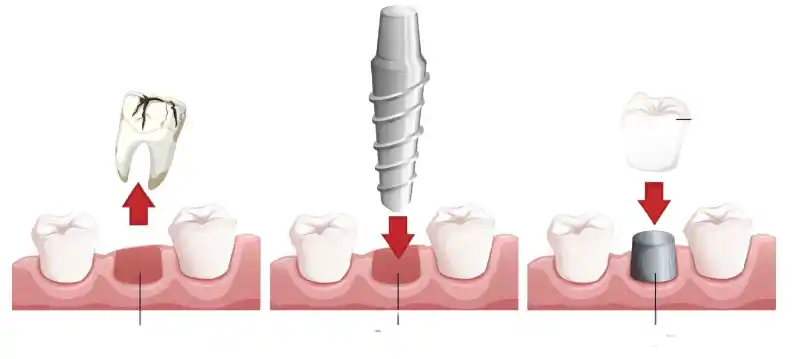
Dental health is one of the most important aspects of overall well-being, especially for seniors. Missing teeth can affect chewing, speaking, appearance, and even confidence. For many, dental implants are the gold standard solution for tooth replacement. They are durable, natural-looking, and can last a lifetime with proper care. However, the biggest barrier for seniors is often cost. Dental implants are expensive, and traditional insurance plans rarely cover them fully.
The good news is that there are affordable ways for seniors to get dental implants without breaking the bank. In this article, we’ll explore why implants are worth considering, what factors influence their cost, and practical strategies to find low-cost dental implants for seniors.
Why Dental Implants Are Important for Seniors
As we age, tooth loss becomes more common due to gum disease, decay, or injury. Dentures and bridges have been traditional solutions, but they come with drawbacks such as discomfort, slipping, and difficulty chewing certain foods. Dental implants, on the other hand, provide benefits like:
- Stability – Implants are anchored into the jawbone, so they don’t slip or move.
- Bone preservation – They prevent jawbone deterioration that usually happens after tooth loss.
- Natural look and feel – Implants look and function like real teeth.
- Longevity – With good care, implants can last decades, making them a long-term solution.
For seniors, this can mean better nutrition, improved confidence, and enhanced quality of life.
Why Are Dental Implants So Expensive?
Before looking for affordable solutions, it’s important to understand why implants cost so much. On average, a single implant can range from $3,000 to $6,000, depending on various factors such as:
- Surgical procedure – Implant surgery requires advanced technology and expertise.
- Materials used – High-quality titanium and ceramic materials add to the cost.
- Additional treatments – Bone grafts or sinus lifts may be necessary for some seniors.
- Geographic location – Costs vary depending on where you live and the dental clinic you choose.
- Professional experience – Highly experienced implant specialists may charge more.
Knowing these factors can help seniors compare options and find ways to reduce expenses.
Strategies for Finding Low-Cost Dental Implants for Seniors
1. Dental Schools and Training Programs
Many dental schools across the U.S. and other countries offer implants at a reduced price. Since students perform the procedure under the supervision of experienced dentists, the quality is still reliable. This can save up to 50% of the regular cost.
2. Government and Non-Profit Programs
Some government health initiatives and non-profit organizations provide free or discounted dental care for seniors. While implants are less commonly covered than dentures, some programs do assist low-income seniors. Checking with local senior centers or state dental associations is a good starting point.
3. Discount Dental Plans
Unlike insurance, discount plans offer membership benefits that reduce the cost of dental services. Seniors pay an annual fee and receive significant discounts on implants and other procedures at participating dentists.
4. Dental Tourism
For seniors who are able and willing to travel, countries like Mexico, Costa Rica, Hungary, and Thailand provide dental implants at a fraction of U.S. prices, often with the same high-quality standards. Even after factoring in travel expenses, the total cost may still be lower.
5. Charity and Community Clinics
Some local charities and community health centers provide low-cost dental services. While implants may not always be available, seniors can sometimes access implant-supported dentures or partial assistance.
6. Financing and Payment Plans
Many dental clinics offer financing options to make implants more affordable. Seniors can pay in installments rather than one lump sum, easing the financial burden.
7. Senior Discounts and Insurance Alternatives
Some dental offices provide special pricing for seniors. While Medicare doesn’t usually cover implants, some Medicare Advantage Plans or supplemental dental insurance may cover part of the cost. It’s worth checking plan details carefully.
Tips for Choosing Affordable Yet Reliable Implants
When searching for low-cost dental implants, affordability should not compromise safety and quality. Here are some tips:
- Check credentials – Ensure the dentist or clinic is licensed and experienced.
- Compare multiple clinics – Get at least 2–3 consultations and cost estimates.
- Ask about materials – Ensure that implants are made of high-quality titanium or zirconia.
- Look for warranties – Some clinics offer guarantees on implants, adding peace of mind.
- Read patient reviews – Real experiences can give insights into both cost and care.
The Bottom Line
Dental implants can be life-changing for seniors, but high costs often discourage them from pursuing this option. By exploring dental schools, government aid, discount plans, dental tourism, and financing options, seniors can find ways to make implants more affordable.
Good oral health is not just about appearance—it impacts nutrition, self-esteem, and overall well-being. With research, planning, and the right resources, seniors can access low-cost dental implants without sacrificing quality. Investing time in finding the right option ensures a healthier, happier smile for years to come.